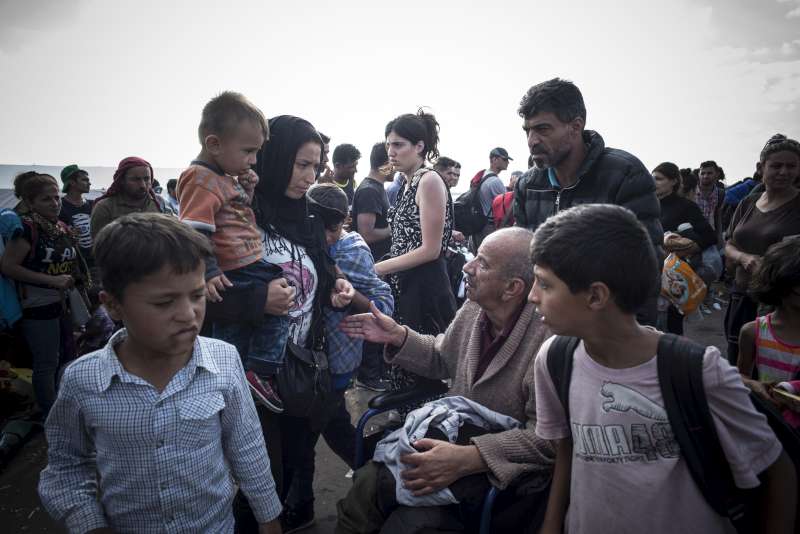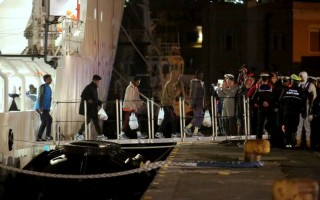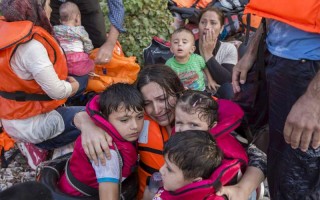
Refugees wait to take a bus in Hungary right after crossing the border from Serbia in order to go to the pre-registration center. Thousands of refugees fleeing war and persecution, mostly in Syria, cross this border every day. © UNHCR / O.Laban-Mattei
GENEVA, Sept 15 (UNHCR) –Reiterating its call for a robust and coherent European response to the current refugee crisis, the UN refugee agency today expressed deep disappointment that European Union member states failed to reach agreement over a wider relocation plan of up to 120,000 people.
“Yesterday’s meeting in Brussels of the European Council of Ministers saw the formal adoption of an earlier relocation proposal involving 40,000 people. This is a single welcome step towards addressing the current refugee situation in Europe, but it is clear that much more is still needed,” UNHCR spokesperson Melissa Fleming told a press briefing in Geneva.
She added that decisive agreement was needed without further delay to address the needs, and called for “bold action based on solidarity from all Member States”.
“UNHCR is deeply disappointed that although a majority of Member States were in agreement with a wider relocation proposal involving 120,000 people, a final consensus on this could not be reached,” she said.
However, UNHCR said relocation of increased numbers beyond the 40,000 could start to be implemented with the countries that expressed support for the proposal.
“To succeed, relocation has then to be accompanied by large-scale emergency reception, assistance and registration efforts in the countries most impacted by arrivals, particularly Greece, Hungary and Italy,” Fleming stated.
She noted that a “positive development in the Presidency conclusions” was the support to Greece in reception and asylum, which she said was critical for the success of the relocation program.
In addition, she said UNHCR was pleased to see the inclusion of support for affected countries in the Western Balkans to implement their obligations in relation to people in need of international protection. Special support is needed for Serbia and the former Yugoslav Republic of Macedonia to support efforts to assist refugees.
“We welcome the announcement of increased support by the EU and Member States to UNHCR to respond to the needs of refugees in countries neighbouring Syria. The vast majority of Syrian refugees are hosted by these countries,” Fleming said.
She again stressed that efforts are needed to address root causes of forced displacement around the world. A comprehensive response to refugee situations needs diplomacy, political will, and concerted action for the prevention, as well as resolution of conflicts that force people to move.
Saving lives of refugees and migrants at sea continues to be a critical priority, as brought home by several boat tragedies over the past few days including this morning off Kos where it’s reported that at least 22 people are missing, 13 of whom are feared to have drowned.





